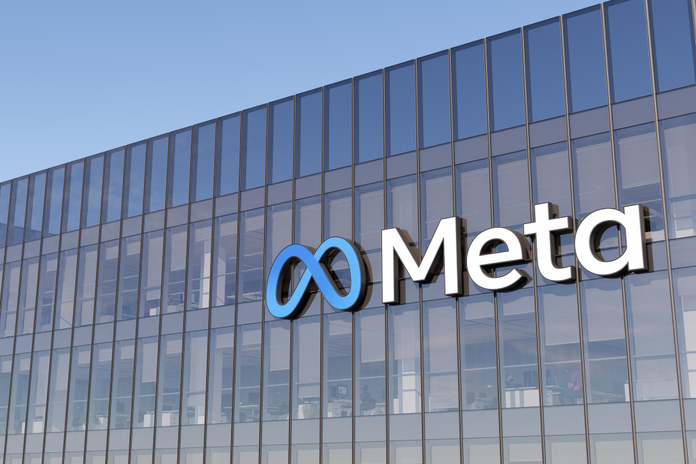Meta Platforms (NASDAQ:META) has made significant strides in artificial intelligence (AI), positioning itself as one of the key players in the tech space. While Meta AI initiatives have generated excitement, the company’s stock has seen a mixed performance lately, returning 7.6% over the past month, compared to 12.5% growth in the broader Internet Software industry. Investors are now wondering if Meta’s heavy investment in AI will be enough to drive stock prices higher in the coming months.
Meta’s AI Powerhouse: Leveraging Data for Growth
Meta’s vast data collection, powered by its platforms such as Facebook, Instagram, WhatsApp, and Messenger, makes it a significant player in the AI space. With over 3.2 billion daily active users, Meta has access to an immense volume of data, which is essential for training AI models. These Meta AI initiatives have enabled the company to enhance its digital advertising capabilities, a major revenue driver.
In the second quarter of 2024, Meta reported a 21.7% year-over-year increase in advertising revenues, reaching $38.33 billion. This was largely driven by a 10% increase in ad impressions across its platforms. With 97.9% of its total revenue coming from digital ads, Meta’s AI-driven advertising strategy is crucial for maintaining growth.
AI-Fueled Competition: Keeping Up With the Magnificent 7
Meta is part of the “Magnificent 7,” a group of tech giants that also includes Amazon (NASDAQ:AMZN), Alphabet (NASDAQ:GOOGL), Microsoft, Nvidia (NASDAQ:NVDA), Apple (NASDAQ:AAPL), and Tesla (NASDAQ:TSLA). While all these companies have seen substantial gains due to AI advancements, investor fatigue is beginning to set in as skepticism over AI’s long-term impact grows. Meta’s AI initiatives must continue delivering meaningful advancements to stay competitive with these tech giants.
In particular, Meta has been rolling out AI tools like Meta AI, which is set to become the most widely used AI assistant by the end of the year. Available in more than 20 countries and eight languages, Meta AI is positioned to make significant strides in improving user experiences and driving platform engagement.
Meta’s Regulatory Challenges: A Persistent Headwind
Despite the potential of Meta AI initiatives, regulatory challenges present a significant concern for the company. Meta faces scrutiny over data privacy and the use of personal information, which is fundamental to its business model. Governments worldwide are increasingly tightening regulations on how tech companies handle user data, which could impact Meta’s future operations.
The company’s significant investment in AI infrastructure, expected to be between $37 billion and $40 billion in 2024, may also draw attention from regulators concerned about the ethical use of AI. While these investments are essential for staying competitive, the monetization of AI services could take years to materialize, leaving investors with potential short-term risks.
Meta’s AI: Boosting Appeal Among Young Adults
Meta is using AI to strengthen its appeal among younger demographics, particularly those aged 18 to 29, who have traditionally favored competitors like Alphabet’s YouTube and Snapchat. The company’s incorporation of AI into WhatsApp and other platforms is making its services more user-friendly for businesses and consumers alike.
One of Meta’s most notable innovations is the Llama family of foundation models. The release of Llama 3.1 has been a game-changer, offering a frontier-level open-source AI model. Meta is already working on Llama 4, which is expected to further boost the company’s AI capabilities and maintain its competitive edge in the tech space.
Stock Valuation: A High Price for Investors?
While Meta AI initiatives show promise, META stock may not be a bargain at current levels. The stock is trading at a forward 12-month price-to-sales ratio of 7.32x, higher than the Computer & Technology sector’s ratio of 2.52x. This indicates that investors are paying a premium for Meta’s anticipated growth, but with regulatory concerns and a long timeline for AI monetization, this high valuation may pose risks.
Additionally, Meta stock appears to be overvalued relative to other tech companies. Investors should consider whether they are willing to pay a high price for a company still in the early stages of AI monetization.
Conclusion: Should You Buy META Stock?
Meta’s AI initiatives are expanding rapidly, positioning the company as a leader in AI development. However, while AI is expected to drive future growth, the full monetization of these technologies will take time. Investors must balance the company’s long-term AI potential with its current regulatory challenges and high valuation.
For long-term investors willing to endure potential short-term volatility, META stock could offer strong returns. However, those seeking more immediate gains may want to hold off, as Meta’s regulatory concerns and premium valuation present significant risks.
Featured Image: Megapixl









